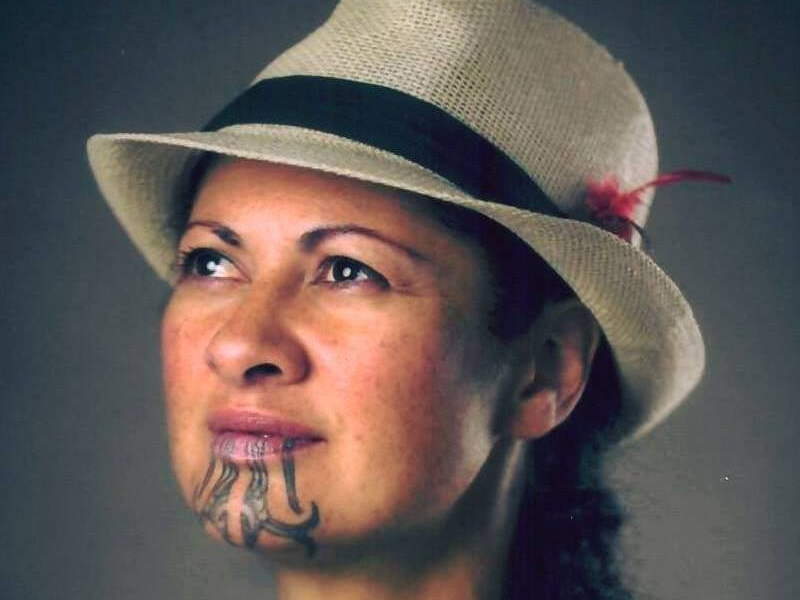Catherine Murupaenga-Ikenn
Ngāti Kurī and Te Rarawa Māori Peoples
A proud grandmother, Catherine hails from the Te Rarawa and Ngāti Kurī Māori peoples of Aotearoa (A.K.A. New Zealand). With a Master of Laws (Victoria University, Wellington), and two UN Office of the High Commissioner for Human Rights Indigenous Fellowships (first in 2005, and a Senior Fellowship in 2020), Catherine has been an Indigenous activist most of Her adult life working on human rights (including environmental, social, economic and climate justice) in Aotearoa and internationally.
Her career began as a policy analyst for the New Zealand Government, followed by a brief stint in the legal sector before returning home to work in the Historical Treaty Claims settlement Māori-Crown negotiations space (as Project Manager for Te Rarawa’s negotiations 2000-2010, and as Negotiator for the Ngāti Kurī settlement 2008-15). She has represented Her Peoples in a variety of UN indigenous human rights fora (including in senior roles such as the Co-Chair of the Pacific Caucus for the 2014 Global Preparatory Conference, Norway, for the UN World Conference on Indigenous Peoples).
As part of Her ongoing campaign activism, she has been a founding member of numerous social justice and campaign groups such as Te Waka Hourua (Māori climate justice activists and their mainstream allies in Aotearoa – born out of Extinction Rebellion Aotearoa), Climate Change Tai Tokerau Northland Trust, the Pacific Indigenous Women’s Network and RegenIntel’s Project Peoples initiative. Having worked as an educator in the field of business and enterprise, and as consultant for different UN Agencies and mechanisms, Catherine continues to provide research and policy writing expertise, and is an active workshop facilitator and public speaker. More recently, in partnership with Wombs of Peace and other Indigenous wisdom-keeper groups and networks, she is devoting more focus to metaphysical (spiritual) awareness and activism for healing people and the planet.
A proud grandmother, Catherine hails from the Te Rarawa and Ngāti Kurī Māori peoples of Aotearoa (A.K.A. New Zealand). With a Master of Laws (Victoria University, Wellington), and two UN Office of the High Commissioner for Human Rights Indigenous Fellowships (first in 2005, and a Senior Fellowship in 2020), Catherine has been an Indigenous activist most of Her adult life working on human rights (including environmental, social, economic and climate justice) in Aotearoa and internationally.
Her career began as a policy analyst for the New Zealand Government, followed by a brief stint in the legal sector before returning home to work in the Historical Treaty Claims settlement Māori-Crown negotiations space (as Project Manager for Te Rarawa’s negotiations 2000-2010, and as Negotiator for the Ngāti Kurī settlement 2008-15). She has represented Her Peoples in a variety of UN indigenous human rights fora (including in senior roles such as the Co-Chair of the Pacific Caucus for the 2014 Global Preparatory Conference, Norway, for the UN World Conference on Indigenous Peoples).
As part of Her ongoing campaign activism, she has been a founding member of numerous social justice and campaign groups such as Te Waka Hourua (Māori climate justice activists and their mainstream allies in Aotearoa – born out of Extinction Rebellion Aotearoa), Climate Change Tai Tokerau Northland Trust, the Pacific Indigenous Women’s Network and RegenIntel’s Project Peoples initiative. Having worked as an educator in the field of business and enterprise, and as consultant for different UN Agencies and mechanisms, Catherine continues to provide research and policy writing expertise, and is an active workshop facilitator and public speaker. More recently, in partnership with Wombs of Peace and other Indigenous wisdom-keeper groups and networks, she is devoting more focus to metaphysical (spiritual) awareness and activism for healing people and the planet.







